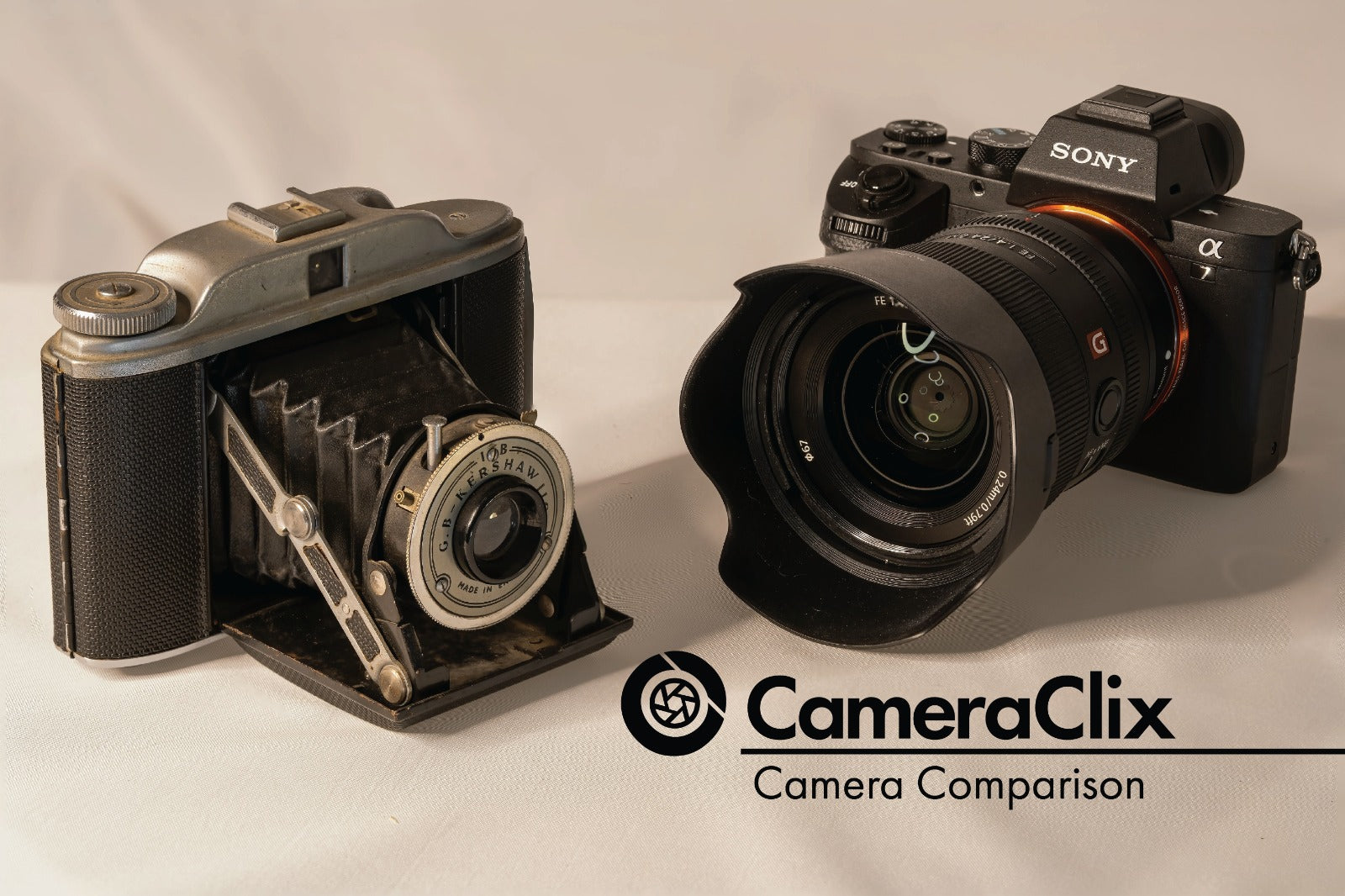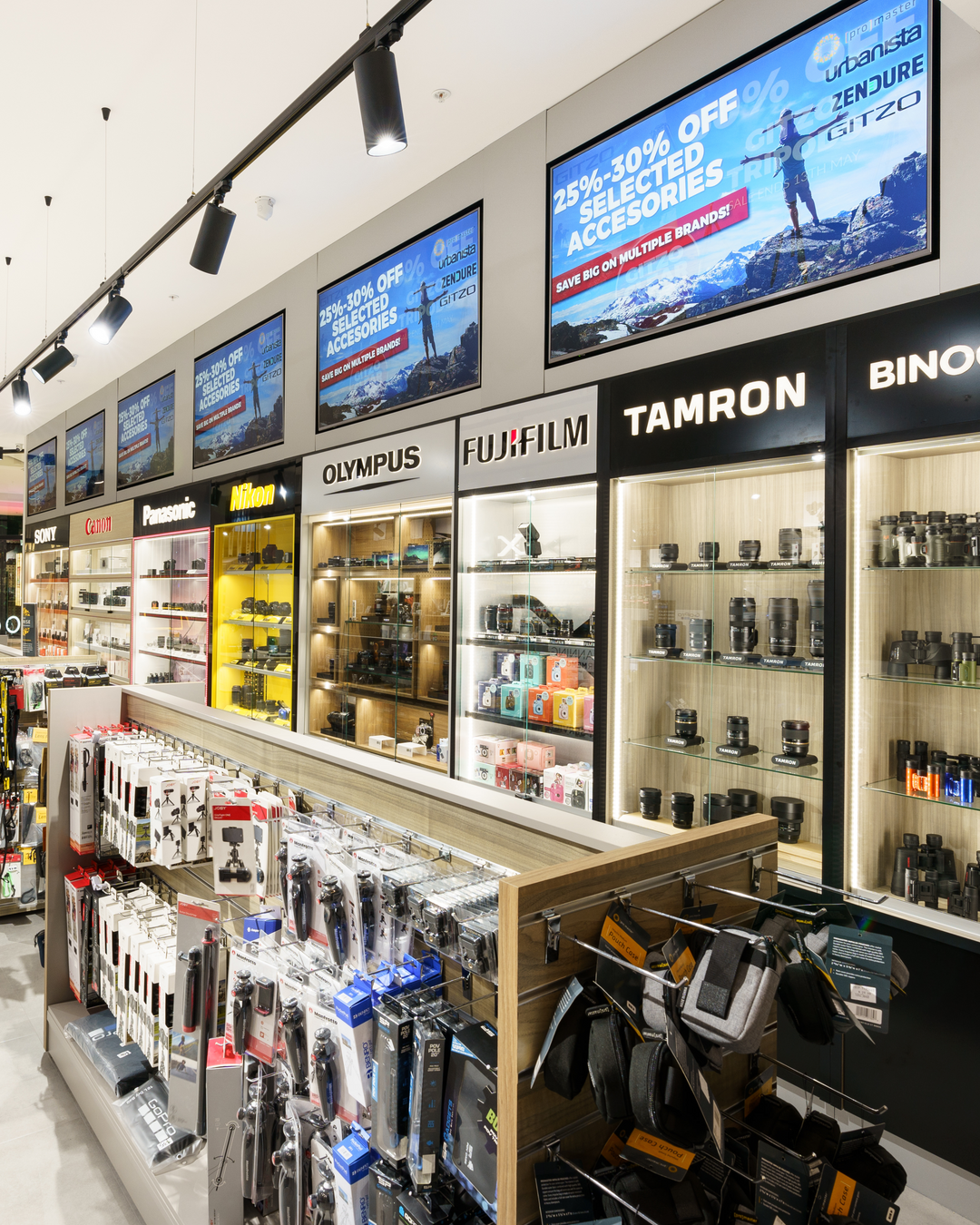DSLR vs. Mirrorless: Which Camera Type Is Right for You?

When it comes to choosing a camera, the debate between DSLRs (Digital Single-Lens Reflex) and mirrorless cameras continues to be a hot topic among photographers. Each type has its unique strengths and weaknesses, and the decision ultimately depends on your specific needs and preferences. In this article, we'll explore the key differences between DSLRs and mirrorless cameras to help you make an informed choice.
DSLRs: The Traditional Workhorses
Pros:
-
Optical Viewfinder: DSLRs use an optical viewfinder, which provides a clear and natural view of the scene through the camera's lens. This makes composing images in bright sunlight or low-light conditions easier, as well as previewing your frame without powering your camera on.
-
Battery Life: DSLRs generally have longer battery life compared to mirrorless cameras due to less reliance on a rear monitor. This can be advantageous for extended shooting sessions or when traveling without easy access to charging.
-
Wide Range of Lenses: DSLRs have a vast selection of compatible lenses, including older models and third-party options. This versatility allows for a wide range of creative possibilities.
-
Reliability: DSLRs are known for their robust build quality and durability, making them suitable for challenging environments and rough handling.
Cons:
-
Size and Weight: DSLRs are bulkier and heavier than mirrorless cameras due to the internal mirror mechanism and optical viewfinder.
-
Limited Live View: While DSLRs offer live view mode on their LCD screens, it's not as advanced or responsive as the electronic viewfinders (EVFs) found in mirrorless cameras.
-
Slower Autofocus in Live View: DSLRs often have slower autofocus when using live view mode, making it less suitable for certain types of photography, such as fast action or video recording.
-
Mirror Mechanism Noise: The flipping mirror in DSLRs creates noise during each shot, which can be distracting in quiet environments.
Mirrorless Cameras: The Compact Innovators
Pros:
-
Compact and Lightweight: Mirrorless cameras are significantly smaller and lighter than DSLRs, making them perfect for travel and street photography.
-
Electronic Viewfinders (EVFs): Mirrorless cameras use EVFs or high-resolution LCD screens, offering a real-time, digital preview of your shot with exposure and composition information.
-
Fast Autofocus: Many mirrorless cameras feature advanced autofocus systems, including phase-detection or hybrid systems, allowing for quick and precise focusing.
-
Silent Shooting: Mirrorless cameras can often shoot silently, which is ideal for discreet photography in quiet settings.
Cons:
-
Shorter Battery Life: Due to their smaller size, mirrorless cameras typically have shorter battery life compared to DSLRs. It's advisable to carry spare batteries for longer shoots.
-
Limited Lens Selection: While the selection of lenses for mirrorless cameras is growing, it may not be as extensive as that for DSLRs. However, this gap is closing rapidly as more manufacturers release mirrorless lenses.
-
Durability: Mirrorless cameras, while well-built, might not be as rugged as DSLRs, making them less suitable for extreme conditions.
Which One Is Right for You?
Choose a DSLR if:
-
You prioritize optical viewfinders and prefer composing shots through them.
-
Extended battery life is essential for your photography style.
-
You require a wide selection of lenses for various photography genres.
-
You prefer a camera with a rugged build for challenging environments.
Choose a Mirrorless Camera if:
-
Portability and compactness are a priority for you.
-
You want the advantages of an electronic viewfinder or prefer composing shots on an LCD screen.
-
Fast and accurate autofocus is crucial for your photography needs.
-
You want more advanced features like IBIS (in-body image stabilisation) or super resolution composites.
-
You want access to the wide range of DSLR lenses, from all manufacturers, that can be used on your mirrorless with the aid of mount adaptors.
-
You're interested in video recording and appreciate silent shooting.
Ultimately, the choice between a DSLR and a mirrorless camera depends on your specific requirements and preferences.
Both types of cameras can produce stunning images and videos, so consider your photography style, budget, and the features that matter most to you before making your decision. As technology continues to evolve, mirrorless cameras are becoming increasingly competitive, making them a popular choice for photographers of all levels.
Regardless of your choice, remember that it's the photographer behind the lens who truly brings a photograph to life.






